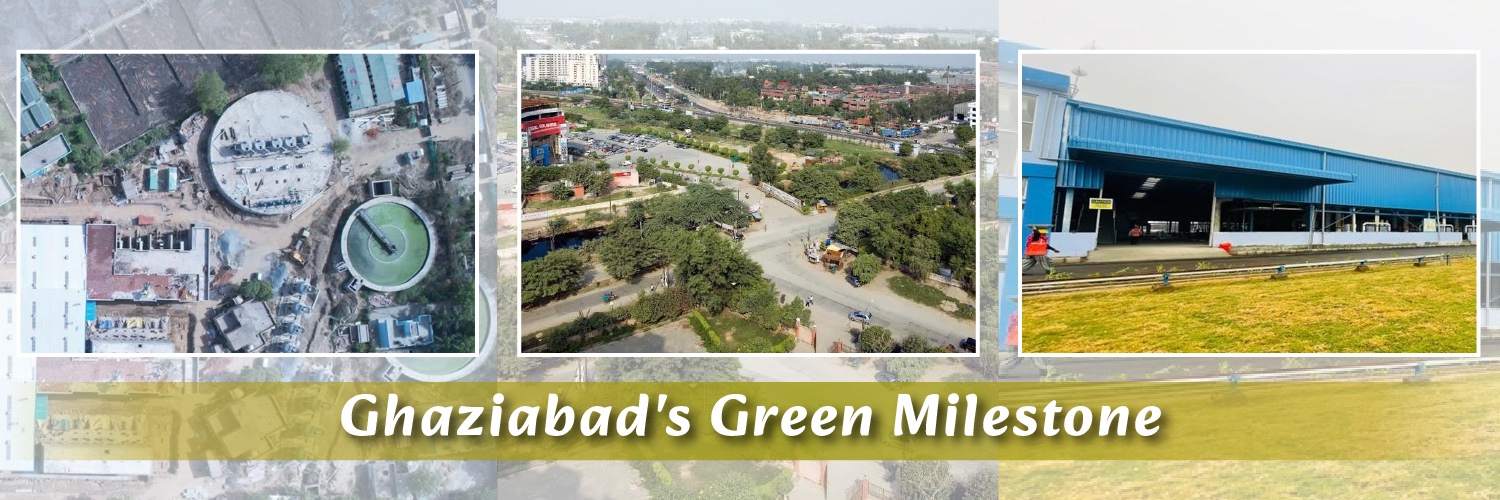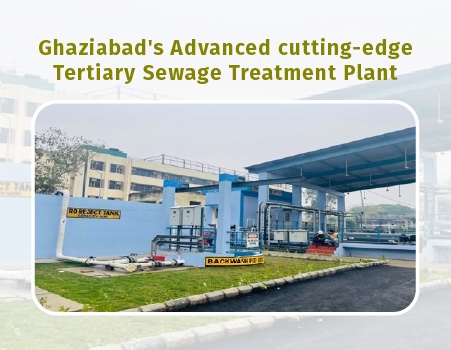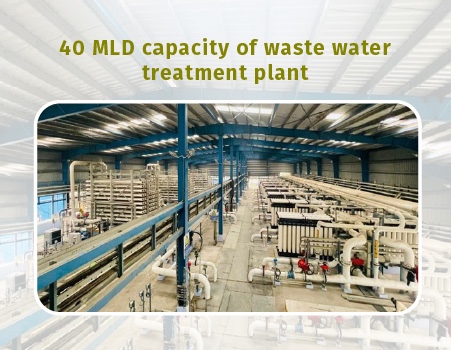
Under the Swachh Bharat Mission-Urban, Ghaziabad has taken a landmark step in promoting sustainable infrastructure and urban resilience by successfully issuing India’s first Certified Green Municipal Bond, raising ₹150 crore for the development of a cutting-edge Tertiary Sewage Treatment Plant (TSTP).
This isn’t just another infrastructure project—it is a game-changer that reflects Ghaziabad’s commitment to creating a sustainable future for its citizens. The funds have been directed towards the development of an advanced TSTP, a state-of-the-art facility designed to treat and reuse wastewater on an unprecedented scale.
The Green Municipal Bond marked a new chapter in India’s financial landscape, providing a sustainable model for funding urban infrastructure. With support from the Govt. of India and the Govt. of Uttar Pradesh*, this project is more than just a water treatment facility; it is a blueprint for future cities across India to combine financial discipline with environmental responsibility.


At the heart of the initiative lies the Tertiary Sewage Treatment Plant (TSTP), a technological marvel that utilizes advanced Membrane Filtration Technologies including microfiltration, ultrafiltration, nanofiltration, and reverse osmosis (RO). These cutting-edge technologies work together to ensure that treated water meets the highest standards, making it suitable for reuse in industrial processes.
With a treatment capacity of 40 MLD, the TSTP is connected to a sprawling 95 km pipeline network, delivering treated water to over 1,400 industrial units across Ghaziabad. The plant ensures that wastewater no longer goes to waste but is instead transformed into a valuable resource that supports the city's industrial sector, reducing dependency on freshwater sources.
The project’s success lies not only in its technological and environmental achievements but also in its innovative financial structure. The TSTP was developed under the Public-Private Hybrid Annuity Model (PPP-HAM), with 40% municipal funding. This public-private partnership approach helped streamline the project’s implementation while ensuring financial discipline. GNN’s success in raising ₹150 crore through the Green Bond issuance demonstrated investor confidence in the city’s sustainable approach and has brought a new level of financial transparency and discipline to the Urban Local Body (ULB).
GNN also contracted with over 800 firms, to supply 9.5 MLD of tertiary treated water, further establishing the city’s leadership in urban water management. Ghaziabad’s innovative approach didn’t go unnoticed on the global stage.
The city was honoured with the Best Municipal Treated Water Reuse Award at the Water Digest World Water Awards 2024-25, a recognition that acknowledges the city's excellence in water conservation, recycling, and sustainable water management.


A team of 22 students and 4 faculty members from West Suffolk College, England, visited the Ghaziabad Municipal Corporation as part of an exposure visit. The team explored the TSTP plant and other municipal projects, gaining insights into Ghaziabad’s commitment to smart cities and sustainable development.
With its pioneering efforts in advanced water treatment technologies, innovative financial models, and a commitment to environmental sustainability, Ghaziabad is leading the charge in India's quest for cleaner, smarter, and more resilient cities.
For regular updates, please follow the Swachh Bharat Mission’s official website and social media properties:
Website: https://sbmurban.org/
Facebook : Swachh Bharat Mission - Urban | Twitter: @SwachhBharatGov
Instagram: sbm_urban | Youtube: Swachh Bharat Urban | LinkedIn: swachh-bharat-urban